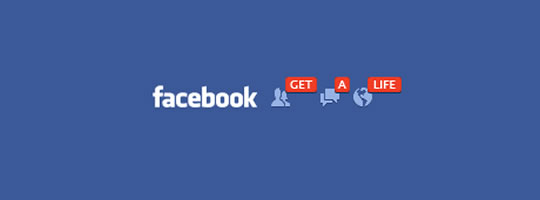Ever since ol’ Kimmy’s oiled-up backside caused worldwide network outages, it wouldn’t surprise me if ‘Keeping Up with the Kardashians’ (which, for the sake of convenience, will henceforth be abbreviated as KUWTK) saw a boost in ratings due to the millions seeking an explanation for her participation in that tacky, not to mention degrading, Paper magazine photo-shoot.
With nothing to lose, I’m prepared to come forth as one of those many plebeians whose curiosity probably, sadly and indirectly, resulted in Kris Jenner getting a massive momager pay rise. After all, the popularity of those ‘famous for being famous’ usually earns its worth in dosh. For those of you giving me (or, more appropriately, your computer screens) the finger whilst defending Kim-Kar’s shots as tastefully feminist, I urge you to look more closely at the pictures. She is being paraded on a podium, baring only the parts of her body that men find arousing, namely B1, B2 and her trunk with all its inglorious junk. Basically, in agreeing to a ploy to take it off and initiate a global internet shutdown, she allowed herself to be represented as an object of male sexual desire. In so doing, Kim, the multifaceted woman (socialite, entrepreneur, actress(?!), etc.) became a thing: a buxom babe with a butt big enough to complement the package.
So, why would anybody in their right mind want to put their bedroom booty (I refer metaphorically to the term defined as ‘something gained or won,’ not the colloquialism for the gluteus maximus) on show for every Bob, Ben and Barry in town? In my search for answers, I realised that the only conduit to understanding the decision of Kimberley Noel Kardashian was to live in her shoes. Clearly, being one of many inconspicuous fish in the sea, the closest I could get to this was to watch KUWTK in order to see what the social media personality is given, endures and lives through on a daily basis.
However, a few minutes of viewing the serial’s ninth season convinced me that there was, likely, a multitude of reasons as to why Kim did it. She may’ve felt that becoming a mother gave her a newfound confidence and ability to be comfortable in her own skin. If I remember correctly, back when I was fifteen and watching teenage coming-of-age films and reality shows (The Hills, KUWTK: Season 1 only, Laguna Beach, etc.), Kim didn’t always have the self-esteem that she flaunts on Paper’s cover. In fact, despite her protestations about going nude, her mother convinced (okay, that’s too weak a word – ‘pressured’ is more fitting) her into doing that Playboy spread. So could Kris have done it again? She does get a percentage of what her daughter-clients earn, so that’s a thought.
But could it’ve just been Kim who wanted the money this time? Or perhaps it wasn’t about the cash at all, and it was simply a ‘public-but-personal’ gift from Kim to Kanye. I mean, she did take one-thousand-two-hundred selfies on their family holiday to Thailand to make that book for him. Or look, it might’ve just been Kim’s self-absorption. All I recall, from KUWTK‘s first season is that she continuously raved about being one of the top ten searches on Google or something. For those of us pondering her decision, I regret to say that unless we are Kim Kardashian, we’ll never truly know the full context behind it.
Fortunately, my memories of Season 1 of KUWTK as well as viewing Season 9 taught me two very crucial things about the Kardashian-Jenner-West-Disick clan. The first, and less important of them, is that common folks like you and I find the show alluring because it is like looking into the life you couldn’t have, and probably never will. There is something about witnessing young adults, born into incredibly privileged families, party and shop away their inheritances that is interesting to all who actually go the hard yards to make ends meet.
In all honesty, and forgive me if I’m wrong, I don’t think the revenue earned from their ‘Dash’ stores and other entrepreneurial ventures, such as Kardashian Kollection, even amounts to the capital put in – that is to say that they probably don’t break-even. Therefore, in my opinion, their main source of sustenance likely stems from the selling of their privacy to the E! channel. Nevertheless, I don’t think I’m wrong in saying that the majority of viewers feel either envy, longing or even pity for the circumstances of the ‘characters.’ Their lives comprise of glamorous events, fashion shows and club nights that we’d just love to attend ourselves, but also stressors like potential business deals, dramatised simultaneously by operatic montage music.
The second thing that KUWTK taught me is they, save Khloe, are horrible role models for how to deal with mental illness. Cue Season 9, Episode 14: ‘A Thailand Vacation – Part 1’. The family makes a vote on which country they would like to holiday in, because that’s what you do when you’re loaded, duh. With one vote for Italy, one for Jamaica, one for Armenia, one for Capris, two for Thailand, one for Turkey and one for Ibiza, it’s pretty clear Thailand took the title with a winning streak.
During the process, Kim questions Rob’s whereabouts, whereby Khloe replies, ‘He’s in the gym.’ Sardonically, Kim retorts, ‘Is he even gonna show up on the family vacation?’ Her attitude is in reference to Rob’s reclusive behaviour, an ongoing feature of the television show observable by his absences from familial gatherings at the Jenner mansion and a typical symptom of depression, which he’d revealed several episodes earlier that he’d been diagnosed with, and which I will refer again to later on.
So after a few scenarios, mainly of Kim and Kris gloating about Kimye making the American Vogue cover, the screen cuts to one of the family’s general practitioner administering preventative shots to all the Jenners and Kardashians. That Rob is there means that, by some miracle, somebody (most likely Khloe, who is quite close to and cares for him) convinced him that coming along may not be such a bad idea.
However, amidst the debacles surrounding their preparations for the trip, and hurried running for the Asiana First Class cabin, they realise that Rob is not there. Strangely, though, the only person highly distressed about his absence is Khloe, who goes to enormous lengths to ensure his safety, such as calling, texting and leaving voicemails on his mobile phone, using the plane cabin’s telephone to contact him, and even considering pulling out of the vacation. While Kris says ‘it breaks (her) heart that Rob’s not coming on the family vacation and now Khloe wants to cancel,’ it seems the issue of foremost significance to her is still the holiday, as she laments that the above situation ‘is not the way (she) wanted to start out this vay-kay.’
Although Khloe ends up travelling with the Kardashian-Jenner crew to Thailand, she is continuously vexed about Rob’s condition, to the point where enjoying the sights, sounds and tastes of the beautiful destination is proving difficult. Juxtapose this with the rest of the family, and you find a massive difference in reaction to Rob’s not showing up. Instead, they’re all enraptured by the features of the luxury house they rented, such as the ‘moon room’ and other oddities, as well as getting Thai massages and zip-lining, of which the latter activity saw melodramatic fear on the part of Kris and Kim.
And it is the ignorance of everybody, except for Khloe, that I find to be this episode’s recipe for disaster and extremely troubling, particularly in its portrayal of mental illness. To render flippant the troubles of one’s own sibling, and to prioritise leisure time over the wellbeing of one’s own son, or to just turn a blind eye to the plight of one’s own brother only helps to add to the stigma that society holds toward the idea, and sufferers of, mental illnesses. For Rob, who is enclosing himself by not sharing his experiences and thoughts with others and not responding to calls, it seems he is suffering from a depression instigated by a possible life dilemma, emotional pain and, perhaps, very low self-esteem.
To be clear, I’m not an expert on these matters, but having undergone treatment for conditions like depression and anxiety, I can understand the personal feelings of being in a rut and preferring complete solitude, which only worsen when those we hold close neglect us in times of need. At least, for Rob, he can find solace in the fact that Khloe cares for him. Sometimes, the love and sympathy of one person is enough to get you through each day. Nevertheless, the point stands that Rob ultimately needs professional help – both from psychologists and psychiatrists – topics that were not mentioned at all during the entire episode. In fact, they were overshadowed by Kris and Bruce’s expressions of annoyance that Rob’d decided to pull out of the trip last minute, which are completely deconstructive to his path to getting better!
At this point, I wouldn’t be surprised if the Kardashian-lovers among you shake your fists at me, screaming out, ‘Didn’t you know that parts could be edited out?! Maybe they did talk about it and it never aired. Or maybe they decided not to show it because it was too private.’
May I remind you that multiple polls have shown that those aged 18 to 34 are those most enraptured by the Kardashian-Jenner-West-Disick empire and their latest activities. They see this family as their role models! Therefore, KUWTK would serve as an amazing platform on which to publicise critical social issues – most of all, mental health and even social welfare – in order to teach viewers that responding to a friend or relative in need does not involve heartless ignorance but a sympathetic heart and willingness to listen. Being the people who basically make the show what it is, the Kardashians and Jenners no doubt have a say in what stays on the screen and what falls onto the cutting room floor. Although Rob may not want them to talk to the cameras about his personal issues, his sisters should at least speak sincerely of ways that they could help and reach out to him.
Airing conversations of this nature would help demonstrate to and educate viewers that mental health and mental illnesses are not things that people should be afraid of, let alone mock. Not only would it teach them that mental health shouldn’t be stigmatised and those suffering with illnesses shouldn’t ostracised, but it would also help viewers understand that illnesses like depression, bipolar disorder, anxiety and schizophrenia are quite common in society. Moreover, it would give them the knowledge that people aren’t necessarily born with these illnesses, but that these can develop within them during changes in their surroundings and circumstances.
Unfortunately, that the Kardashians and Jenners have chosen, instead, to talk about their latest fashion, sporting and other money-splurging adventures, leaves little wonder as to why their ratings are dropping with each coming year. Yes, Kim’s bottom with its own gravity field, will’ve helped pull them up a notch, but after the commotion over this boils down, KUWTK will probably start walking, albeit slowly, its yellow brick road to oblivion.


